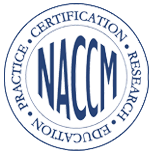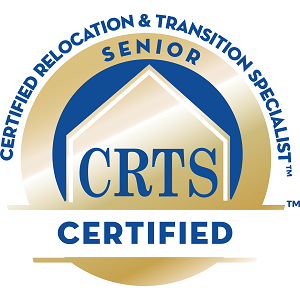National Glaucoma Awareness Month: What You Should Know
Glaucoma is one of the leading causes of blindness in seniors. It is also a complex condition that creeps up on people slowly. According to the American Academy of Family Physicians, 75% of people who are legally blind are seniors. People over the age of 65 are at greater risk of facing issues with visual impairment.
This can leave seniors vulnerable because they cannot rely on their eyesight as much as they used to. Now that it is Glaucoma Awareness Month, we must shed light on the issues associated with this ailment and find ways to support the elderly who struggle with it.
A Brief Overview of Glaucoma
Glaucoma develops because of damaged optic nerves due to increasing pressure that blocks moisture. However, it’s not the kind of condition that happens quickly and causes immediate blindness. Most patients with Glaucoma haven’t even been diagnosed yet because severe symptoms often appear in the advanced stages of the condition.
The symptoms of Glaucoma worsen years after the condition starts to develop. In its advanced stages, patients can lose peripheral vision and struggle to see things from the side without turning their heads. This can result in tunnel visionthat eventually leads to total blindness.
Many people don’t go for regular eye checkups, so they don’t get to diagnose the condition early enough to treat it or prevent it. They often don’t see the need to get eye checkups if they feel completely fine. However, if a senior is over the age of 65, has a family history of Glaucoma, or is African-American, Asian, or Hispanic, they should get annual eye checkups.
Getting checked could prevent the onset of severe cases of Glaucoma. However, those unable to treat the condition in its early stages could see a gradual decrease in their ability to see clearly. People like this need the most support during this challenging time so they can feel supported and cared for even when they are slowly losing their eyesight.
Seniors with Glaucoma Need Emotional Support
Seniors dealing with visual impairment are at a higher risk of depression, withdrawal, and inactivity. They need both medical and emotional support so that they can get to a place where they’ve accepted their visual changes. If your loved one is going through this, please check on them, encourage them, and do what you can to help them start accepting the changes in their life.
Glaucoma can genuinely change a person’s life and not for the better. Those who still desire to drive and take long walks by the river on their own may not get to bask in those simple pleasures anymore. It makes it increasingly difficult for seniors to complete daily tasks, which can make them feel worse about themselves. This can take a mental toll on them, and this is why they need expert care that goes the extra mile to support them.
Seniors with Glaucoma Deserve Extra Care
When you’ve spent your entire life seeing things perfectly and being able to take care of yourself, it isn’t easy to reach a stage where you can’t have the same experiences. Since most Glaucoma patients in their advanced stages experience complete blindness, they need primary care to get through it. One of the most important things that seniors need is someone to help them through their daily tasks and give them the care they need as they deal with their condition.
It’s advisable to get expert, professional care for seniors living with Glaucoma. Professionals from Reflections Care Management specialize in senior care and can provide in-house care that will go a long way in supporting them through their daily hardships. Since seniors with impaired vision face many challenges daily, they must get professional care that understands how to help patients with Glaucoma.
One of the things that caretakers look out for is to ensure that there is good lighting at all times. They also make sure that they observe any areas in the home that could lead to bad falls, and they mitigate those risks. Sometimes this includes repositioning furniture or getting rid of sharp or dangerous objects that can cause fatal accidents. As an untrained individual, you might not have the expertise to know how to create and maintain a conducive environment for your loved one suffering from Glaucoma. That’s why it’s important that you consider the option of having professionals come and give your loved ones the primary care that they need.
How You Can Help
Glaucoma can happen to anyone over the age of 65; it’s not easy to fix with diet and exercise like other ailments. The damage that Glaucoma does on the optic nerves is often irreversible, and this can leave seniors feeling helpless, depressed, and uninterested in life. If you discover that your loved one is struggling with visual impairment, then take the time to be there for them as much as you can.
You should help them with tasks that were easy for them before. That could be driving them to their favorite Farmer’s Market on Sundays or painting their toenails after a long day. What matters is that they are getting the support they need to go through this transition. If you cannot support them all day, every day, then you can contact trusted elderly care specialists from Reflections Care Management to fill in that gap. We’ll give your loved ones the personalized care that they deserve.
During Glaucoma Awareness Month, let’s not forget our loved ones who need us now more than ever. This is a time when they need support, encouragement, laughter, and companionship to not fall into a deep depression that is hard to come out of. Take time to understand the nature of this condition, what stage your loved one is in, and how you can help them. In case you need more information about caring for a senior with Glaucoma, contact the Reflections Care & Management team.














